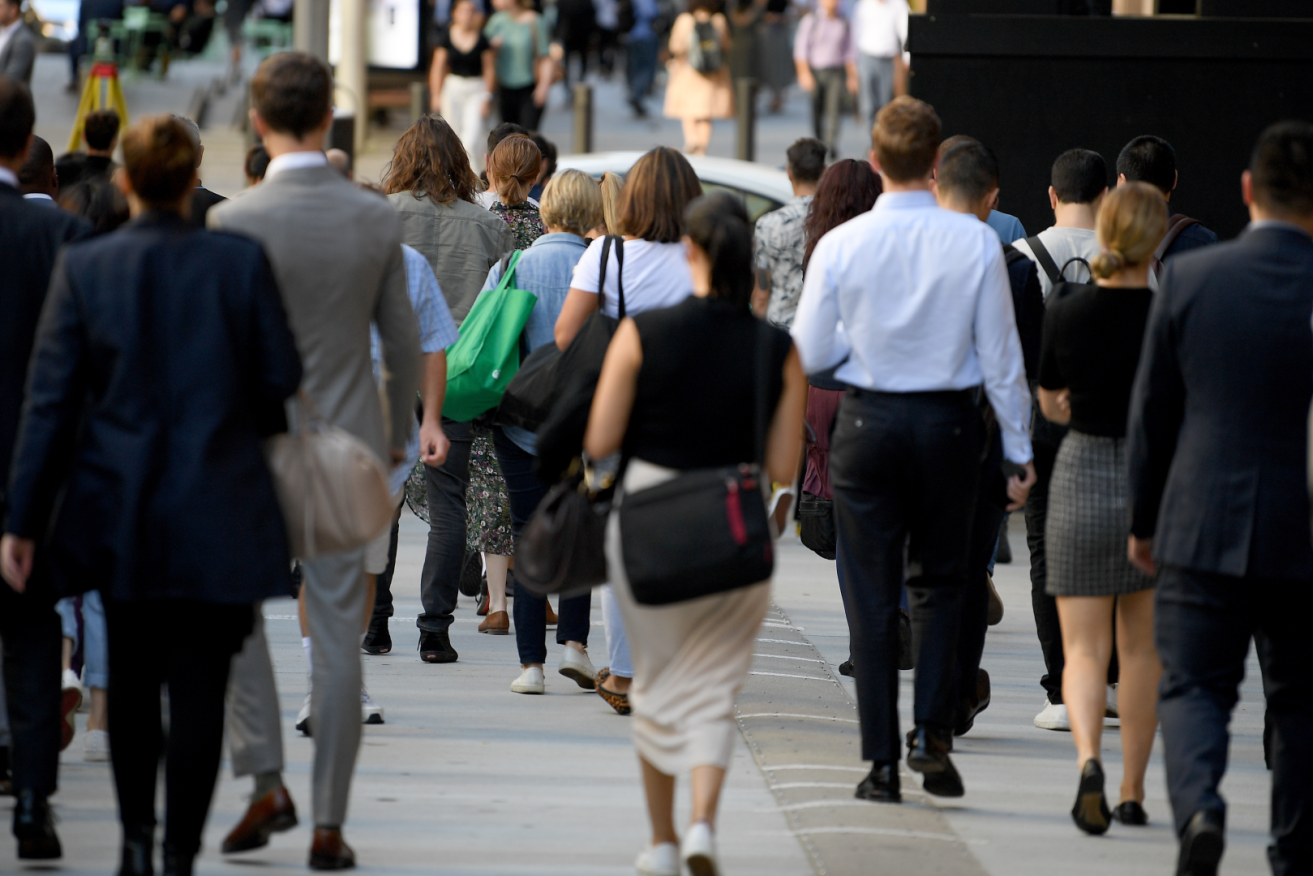Immigration key to Australia avoiding a recession, unlike NZ


Australian employment decreased by around 7000 people in March, coming in below expectations of a 7200 job boost. Photo: AAP
If Australia is lurching towards a recession like the one neighbouring New Zealand is now suffering, there were few signs of it on Thursday.
That’s because the labour market continues to buck the economic blues by adding 76,000 jobs in May, according to data published on Thursday.
The jobless rate edged down to 3.6 per cent, a move which shattered expectations that an April uptick would continue as the economy slows.
Instead, the robust figures are fuelling fears the RBA will take an even tougher stance on interest rates at meetings in July and August.
“The very strong increase in employment in May and the decline in the unemployment rate … now makes a July rate hike from the RBA more likely than not,” ANZ’s Adam Boyton said.
And while such moves would make a downturn more likely, economists said a surge in migration will help the nation avoid a recession.
The Kiwis, however, aren’t so lucky – figures published across the Tasman on Thursday revealed New Zealand’s economy contracted for the second straight period over the March quarter.
The downturn has been sparked by many of the same pressures facing Australia, including an even worse inflation crisis and bigger rate hikes.
Economist Nicki Hutley said New Zealand’s experience should make the RBA think twice about hiking rates too aggressively in coming months.
She said that with the economy now slowing it wouldn’t take much to tip the scales too far in the wrong direction and cause many job losses.
“It’s a cautionary tale for the RBA not to go too hard, too fast,” Ms Hutley said.
“New Zealand were several months ahead of us with their initial tightening – it just shows you what can happen.
“That’s the big question we’re all dealing with – what is the risk you’re prepared to take on the growth side to get inflation under control?”
Jobs surprise
The May jobs data surprised economists because most had expected the jobless rate to inch upwards – as it did in April – on the back of clear signs the economy is slowing down rapidly.
But BIS Oxford Economics Australia head of macro-economic forecasting Sean Langcake said the other shoe hasn’t fallen on the jobs market just yet, with the April increase proving to be a “false dawn”.
“The labour market remains in an incredibly tight position,” he said.
“The conventional wisdom is it’s not sustainable to keep the unemployment rate at around 3.6 per cent and have inflation at target.”
Commonwealth Bank chief economist Gareth Aird said there were signs in May that the jobs market is “loosening”, including a lift in underemployment and a drop in hours worked.
But it’s not happening in the traditional way, which would be through a rise in the jobless rate.
“It is loosening via more workers looking for extra hours,” he said.
“In time the unemployment rate will lift given below‑trend economic growth. But it is simply just taking more time than would be expected given the slowdown in the economy.”
Downturn risks
Most major forecasters are now predicting at least one more rate hike in either July or August that would take the RBA’s target from the current 4.1 per cent to 4.3 per cent.
Some are even predicting rates will reach 4.6 per cent within two months, a reality that would add more than $150 to typical monthly mortgage repayments.
National Australia Bank chief economist Alan Oster thinks such moves will take Australia perilously close to an economic contraction, with GDP slated to rise just 0.5 per cent in 2023.
But despite the growing risk of a downturn in 2023, Mr Langcake says Australia should avoid a contraction in growth because the population has started growing rapidly.
“We have an assumption now of even tighter monetary policy … that takes a bit out of growth and gets you closer to going backwards,” Mr Langcake said.
“But immigration is what these conversations come back to … having this many people coming into the country boosts consumption, services, exports.”








